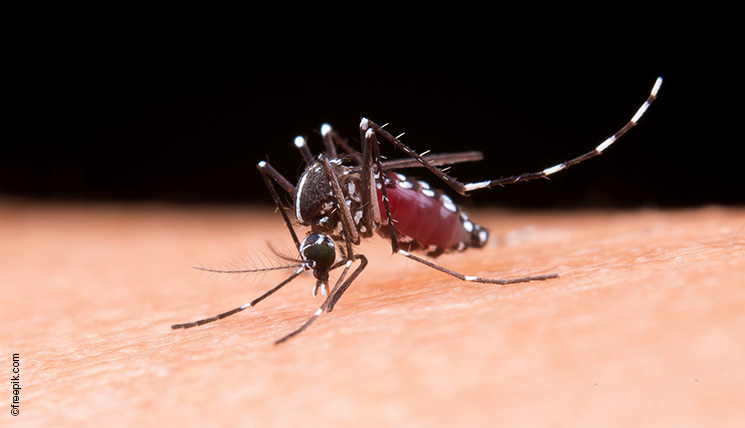Currently, dengue fever poses the greatest challenge in terms of arbovirus infections. With over 14 million cases reported worldwide in 2024, this is the largest ever recorded epidemic of vector-borne viral diseases [1]. In Europe, 304 autochthonous cases were registered in the same year, representing a significant increase compared to 130 cases in 2023 and 71 cases in 2022 [2].
Euroimmun offers a comprehensive range of products for serological dengue virus diagnostics, including ELISAs and immunofluorescence assays for antibody detection. This portfolio has now been extended to include the highly specific antibody assay Anti-Dengue Virus NS1 ELISA 2.0 (IgG). The ELISA can be fully automated and provides quantitative determination of anti-dengue virus IgG antibodies against the strongly conserved, virus-specific non-structural protein 1 (NS1) in human serum, as well as in EDTA, heparin and citrate plasma. The use of the NS1 antigen enables differentiation from other flavivirus infections, although cross reactions cannot be fully excluded.
It should be noted that the Anti-Dengue Virus NS1 ELISA 2.0 (IgG) is not suited for acute diagnostics due to the delayed production of anti-NS1 antibodies. Antibodies against NS1 can only be detected reliably from day 14 after symptom onset. To increase the specificity of the assay, particularly in flavivirus-endemic areas, an alternative cut-off of 20 RU/ml (instead of 10 RU/ml) can be used. This is useful when an increased IgG titer due to an infection with other flaviviruses or vaccination is suspected.
Due to the possibility of cross reactivity between flaviviruses, which makes serological identification of past dengue virus infections difficult, the determination of the serological status is considered complex. Nevertheless, it enables a reliable assessment of the individual risk of a severe course, supports precise diagnosis in acute cases and provides valuable information for targeted epidemiological measures.
Would you like to find out more about arbovirus infections? Read our blog for more information.
[1] WHO. Dengue. (21.08.2025), accessed on 15 Oct 2025
[2] Deutsches Ärzteblatt. Durch Mücken übertragene Krankheiten: ECDC gibt Gesundheitsbehörden Hilfsmittel an die Hand. (04.07.2025), accessed on 15 Oct 2025

